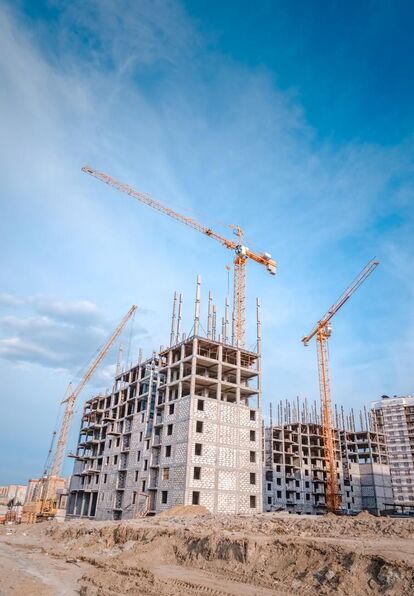
Lawyers in legal hypothecs
We have the experience and knowledge required to advise you on legal construction hypothec.
Construction generally involves significant costs for building, renovating or improving infrastructure, whether for purchasing materials or hiring labor.
To protect contractors against the risk of not being paid by their clients, the law provides a security measure called legal construction hypothec.
The legal construction hypothec is granted to the beneficiary as long as he has a debt towards the owner of a building for the following works:
- Construction
- Building renovation
- Enlargement
- Major repairs
- Supply of materials to carry out this work
Work not covered by a legal construction hypothec is:
- soil decontamination
- Simple maintenance work
Buildings belonging to Hydro-Québec, the public domain, municipalities, prisons, metro stations, schools, CEGEPs and libraries are excluded from the application of the legal construction hypothec.
Consult a legal mortgage lawyer today.
Understanding the definition of legal hypothec
The legal hypothec is a guarantee that arises directly from the law. Unlike the conventional mortgage, it is not the result of an agreement between the parties. In Quebec, the legal hypothec can take different forms, including that linked to the construction and renovation of real estate.
The legal construction hypothec aims to protect the rights of those involved in the construction or renovation of a building (architects, workers, material suppliers, etc.). If a debt resulting from this work is not settled, the legal construction hypothec allows these actors to apply security on the building concerned. This security can lead to the sale of the building in court in order to recover the sums owed.
What is the role of the legal mortgage in the construction of a house?
The legal mortgage plays a vital role during the construction of a house. It serves above all to protect the rights of the actors involved in the project (architects, workers, material suppliers) in the event of non-payment.
Indeed, when a debt resulting from this work is not settled, the actor concerned has the possibility of depositing a legal hypothec on the building. This security is registered in the Land Register and can potentially lead to the sale of the building in court to recover the sums due.
It should be noted that the application of the legal hypothec is not systematic. It depends on several factors such as the type of work carried out, the amount of the debt or the nature of the contract entered into between the parties.
What does the Civil Code of Quebec (ccq) say about legal hypothec?
The relevant article in the ccq
Article 2726 of the Civil Code of Quebec (CCQ) is often cited in matters of legal construction hypothec. It stipulates that a legal hypothec in favor of people who participated in the construction or renovation of a building can only encumber this building. It is acquired only in favor of architects, engineers, material suppliers, workers, contractors or sub-contractors who have carried out the work requested by the owner.
Another relevant article is article 2952 of the CCQ. It indicates that legal hypothecs in favor of participants in the construction take priority, for added value, before all other hypothecs, even published before. These mortgages compete with each other, proportionally to the value of each debt.
Finally, article 1051 of the CCQ specifies that the legal hypothec of the construction, registered following work carried out throughout a co-ownership, is shared between the fractions held by each of the co-owners. This sharing varies according to the relative value specific to each fraction.
What is the scope of the CCQ article on legal hypothec?
Article 2726 of the Civil Code of Quebec (CCQ) offers specific protection to those involved in the construction or renovation of a building. Their work, if it brings added value to the building, can thus give rise to a legal hypothec. However, the scope of this article is limited to certain types of work. For example, the installation of goods which retain their movable nature cannot give rise to the registration of a legal hypothec in the field of construction.
In addition, article 2727 of the CCQ specifies that this legal hypothec remains, even if it has not been published, for 30 days following the end of the work. This deadline is crucial for those involved in the construction site, because it allows them to take the necessary measures to protect their rights in the event of non-payment.
How to interpret this CCQ article?
Interpreting article 2726 of the CCQ requires an understanding of several legal concepts . First of all, the article applies exclusively to people who participated in the construction or renovation of a building.
This implies that only those who have contributed to work which has increased the value of the building can benefit from this mortgage. In addition, this mortgage can only encumber the building concerned by this work.
It is also essential to take into account the rank of this mortgage. As specified in article 2952 of the CCQ, this mortgage has priority over all others, even those published before, with regard to the capital gain.
Finally, article 1051 of the CCQ provides details on the legal hypothec in the context of co-ownership . Thus, in the event of work on the entire co-ownership, the mortgage is shared between the different co-owners according to the value of each fraction.
What is the importance of the entrepreneur in the legal mortgage process?
The entrepreneur plays a major role in the legal mortgage registration process. As the main actor in construction or renovation work, he is often the one who has the most to gain from the application of this security in the event of non-payment.
The entrepreneur must hold the licenses required by law to benefit from the legal hypothec. This is an effective way for him to guarantee his debts and protect himself against payment defaults.
The legal hypothec gives the entrepreneur the privilege of registering a mortgage notice on the building concerned, thus offering a guarantee of being paid from the building in the event of default. However, the law also allows parties to waive the legal construction hypothec in advance, an agreement by which the contractor waives his rights and effects conferred by the legal hypothec, thereby protecting the owner.
Therefore, knowledge and mastery of the legal mortgage process are essential for the entrepreneur, because they directly influence the security of their debts and the success of their projects.
The end of the work and its impact on the legal mortgage
What happens if the work is abandoned?
In the event of abandonment of the work, several legal consequences are to be expected.
First, the legal hypothec remains valid even if the work is abandoned. It remains, whether it has been published or not, for 30 days following the end of the work. This 30-day period applies both in the event of completion of the work and abandonment.
Then, if abandoning the work results in no added value on the building, the work will not give rise to the registration of a legal hypothec. Indeed, only work which brings added value to the building can give rise to the registration of a legal hypothec, according to article 2727 al. 2 and 3 CCQ
Finally, if the work is abandoned and never resumed, the legal hypothec can lead to a registration against the title of the building for several million dollars.
Cancellation of the mortgage at the end of the work
Completion of the work is a crucial step for the cancellation of the mortgage. After the end of the work , the mortgage holder has a period of six months to exercise his right against the building. If no action is taken during this period, the mortgage is automatically extinguished.
However, it is important to emphasize that the legal concept of “end of work” may differ from current definitions. In the context of the legal hypothec, the end of the work is generally declared when all the work planned in the construction project is completed.
The cancellation of the mortgage can be carried out upon simple request after the expiration of the six-month period. Additionally, delisting requests are processed expeditiously, making the process easier for the parties involved.
The importance of the notary in the cancellation of the mortgage
The notary plays a central role in the cancellation of the legal hypothec. Indeed, according to Quebec law, only lawyers and notaries are authorized to prepare the cancellation document. This document is essential because it makes it possible to formalize the end of the legal hypothec. Once prepared, it is transmitted to the Land Registry Officer who then proceeds to the cancellation of the registration of the creditor's rights.
It should be noted that the cancellation of the registration of the notice of legal hypothec can be obtained with the consent of its beneficiary, provided that no action has been brought and published on the immovable concerned. As such, the notary can assist in obtaining this consent and ensuring that all conditions are met for a successful expungement.
In addition, the notary, as a legal advisor, can explain in detail your rights and obligations regarding the legal construction hypothec. He can also guide you through the various legal procedures relating to legal hypothec.
Beneficiaries of the legal mortgage
- The architects
- The engineers
- Material suppliers
- Workers
- The contractor or sub-contractor (sub-contractor)
Each of the entrepreneurs and professionals mentioned above must be properly registered with their professional order or have the required authorizations to be able to benefit from the right to a legal hypothec.
As for the supplier of materials, his right to this hypothec will only be granted if the materials are used in the construction and integrated into the building.
You have 30 days from the end of the renovation/construction work to register a legal construction hypothec.
The stages of the legal mortgage
The notice of termination of the contract
If you are a worker who has not contracted directly with the owner, it is essential to denounce your contract in writing in order to benefit from the legal hypothec in your favour. This denunciation must be made before the start of the work and must be accompanied by proof of service.
The notice of exercise of a hypothecary recourse
The next step is to give notice of the exercise of hypothecary recourse. This notice is essential to exercise hypothecary recourses and must be published within six (6) months following the end of the work, failing which the legal hypothec will be extinguished.
The 4 remedies for all creditors of the legal hypothec:
- Possession
- Taking in payment
- Sale by creditor
- Sale under judicial control
Cancellation of a legal mortgage
If one of the conditions required for the establishment of a legal mortgage is not met, it is possible to request its cancellation.
For example, if a contractor carries out work without a valid permit and then registers a legal hypothec, the owner can request that it be struck off. Likewise, if the permit was not valid at the time of registration of the mortgage.
Moreover, when a legal mortgage is registered and valid, it is always possible to negotiate its cancellation amicably. We can agree on a staggered payment plan with the creditor, or even pay part or all of the debt in exchange for the cancellation of the legal hypothec.
Finally, a legal mortgage registered more than 30 days after the end of the work is invalid. It is also important to note that fees are applicable for the cancellation of a right such as the legal hypothec.


